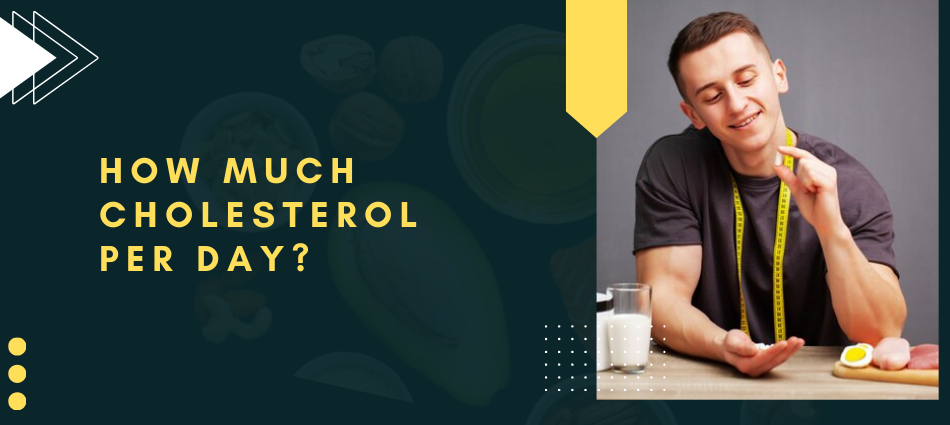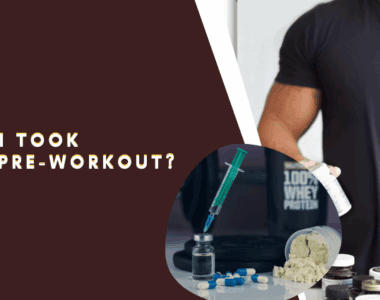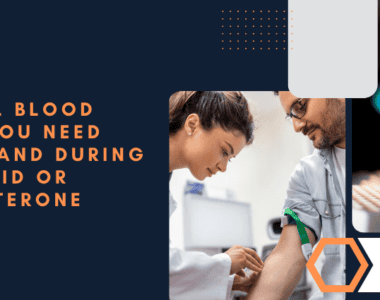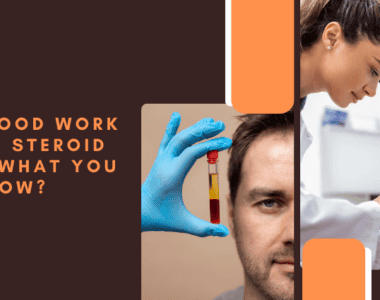How Much Cholesterol Per Day?
Cholesterol is an essential part of your body. It helps build cells, produce hormones, and keep your body functioning well. However, too much cholesterol can harm your heart and blood vessels. Knowing how much cholesterol you should consume daily can protect your health. This guide explains everything in simple terms.
What Is Cholesterol?
Cholesterol is a fat-like substance found in your blood. Your liver makes cholesterol naturally, but you also get it from the foods you eat. It travels in your blood in two main forms:
- Low-Density Lipoprotein (LDL): This is called “bad cholesterol.” It has the ability to adhere to blood vessel walls and create blockages. Your risk of heart disease rises as a result.
- High-Density Lipoprotein (HDL): This is called “good cholesterol.” It returns bad cholesterol to your liver, where it is broken down and eliminated, and aids in its removal from your blood.
How Much Cholesterol Should You Consume Per Day?
Your health determines how much cholesterol you should eat:
- For Healthy People:
Experts suggest consuming less than 300 milligrams (mg) of cholesterol a day. It is still a good idea to abide by this number even though it is no longer a rigid rule. - For People with Heart Problems:
If you have high cholesterol, heart disease, or diabetes, aim for less than 200 mg of cholesterol per day. This lessens the possibility of more issues.
Where Does Cholesterol Come From?
Cholesterol is found in animal-based foods. Plant-based foods do not contain cholesterol. Here’s a breakdown:
Foods High in Cholesterol
- Egg yolks: One large egg yolk has around 186 mg of cholesterol.
- Shellfish: Foods like shrimp and crab are high in cholesterol but low in fat.
- Organ Meats: Liver and kidneys are very high in cholesterol.
- Processed Meats: Sausage, bacon, and hot dogs contain both cholesterol and unhealthy fats.
Foods Low in Cholesterol
- Fruits and vegetables: These are cholesterol-free and rich in fibre.
- Legumes and whole grains: Beans, lentils, and oats help lower bad cholesterol.
- Nuts and seeds: These are full of healthy fats and nutrients.
Why Is Cholesterol Important for Your Health?
Cholesterol is important for the body’s cellular formation and hormone production. It also contributes to the production of vitamin D and bile acids, each of which helps in fat digestion. Without LDL cholesterol, your body could not function successfully. Your liver produces most of the LDL cholesterol your heart wishes, but you could also gather it from meals. Maintaining the proper cholesterol balance is important for true health.
However, high levels of cholesterol may cause fitness troubles. When you have immoderate ranges of “terrible” LDL cholesterol, it is able to build up for your arteries and cause blockages. This heightens the danger of heart ailment and stroke. In assessment, “suitable” HDL cholesterol aids in the removal of excess LDL cholesterol from the bloodstream. Maintaining excellent levels of cholesterol benefits your coronary heart and lowers your risk of good-sized fitness problems.
How to Manage Your Cholesterol?
Avoiding foods high in cholesterol is not the only way to control cholesterol. It’s also about living a healthy lifestyle. Here are simple tips:
- Eat Healthy Fats:
Include foods that are high in unsaturated fats, like fish, nuts, seeds, and olive oil. These fats are good for your heart. - Add Fibre to Your Diet:
Oats, fruits, and vegetables are among the foods that contain soluble fibre. This type of fibre lowers LDL cholesterol. - Exercise Regularly:
Physical activity helps raise HDL cholesterol. It also keeps your heart healthy and increases blood flow. - Quit Smoking and Limit Alcohol:
Excessive alcohol consumption can increase triglycerides, and smoking lowers good cholesterol. Both can harm your heart. - Talk to Your Doctor About Medicine:
If lifestyle changes aren’t enough, medications like statins can help control your cholesterol levels.
Common Myths About Cholesterol
All Cholesterol Is Bad
Not true. Your body needs cholesterol to function properly. The key is to have more HDL (good cholesterol) and less LDL (bad cholesterol).
Eating Cholesterol-Rich Foods Always Raises Blood Cholesterol
Unhealthy fats have a greater impact on blood cholesterol than dietary cholesterol for the majority of people. The fats you eat are often the bigger problem.
Medication Is the Only Way to Lower Cholesterol
This is false. By changing their diet, exercising, and lifestyle, many people can lower their cholesterol levels.
Cholesterol-Friendly Foods to Eat
- Fatty Fish
Salmon, mackerel, and sardines are rich in omega-3 fatty acids. These fats enhance the heart and lower bad LDL cholesterol.
- Whole Grains
Oats, barley, and quinoa are full of fibre. Fibre allows you to decrease LDL cholesterol and maintains you complete.
- Fruits and Vegetables
Apples, oranges, spinach, and kale are full of vitamins and antioxidants. They’re incredible for your overall health.
- Plant-Based Oils
Use olive oil or canola oil in place of butter for cooking. These oils are heart-pleasant and cholesterol-free.
Conclusion
Your frame needs LDL cholesterol; however, it must be balanced. Your heart may be harmed by too much horrific LDL cholesterol, but HDL helps guard it. Your levels of cholesterol may be controlled with the aid of maintaining a lively lifestyle, ingesting a wholesome weight reduction plan, and making sensible lifestyle selections.
Make an effort to incorporate workouts, wholesome fat, and meals high in fibre into your habit. Avoid dangerous fats and excessive-LDL cholesterol foods when feasible. Consult your doctor about LDL cholesterol-reducing medicinal drugs if important.
With small, constant modifications, you could enhance your health and protect your heart.
FAQs
What reduces cholesterol quickly?
Here are 10 foods that can help lower cholesterol and improve your health:
- Oats and whole grains: Foods like oats, barley, and brown rice are rich in fiber, which helps lower bad cholesterol (LDL).
- Omega-3 fatty acids: Found in fatty fish like salmon, these are great for your heart.
- Nuts: Almonds and walnuts are full of healthy fats that support cholesterol balance.
- Avocados: Packed with heart-healthy fats and nutrients.
- Beans and legumes: Lentils, chickpeas, and black beans are excellent sources of fiber.
- Leafy green vegetables: Spinach and kale help manage cholesterol levels.
- Fruits: Apples, oranges, and berries are rich in fiber and antioxidants.
- Olive oil: A healthier choice than butter or margarine.
Is 2 eggs a day too much cholesterol?
About 186 mg of cholesterol are found in the yolk of a large egg. If you don’t eat other cholesterol-heavy foods, one egg a day might be fine for most people. Avoid cholesterol by only eating egg whites.
What are the 5 signs of high cholesterol?
Here are six subtle signs that may indicate high cholesterol:
- Heart attack: High cholesterol can lead to heart problems, including heart attacks.
- High blood pressure: This is a common warning sign.
- Diabetes: High cholesterol can worsen blood sugar issues.
- Chest pain (angina): Discomfort or pain in the chest may occur.
- Stroke: Cholesterol buildup can block blood flow to the brain.
- Pain while walking: Blocked arteries can cause leg pain during movement.




